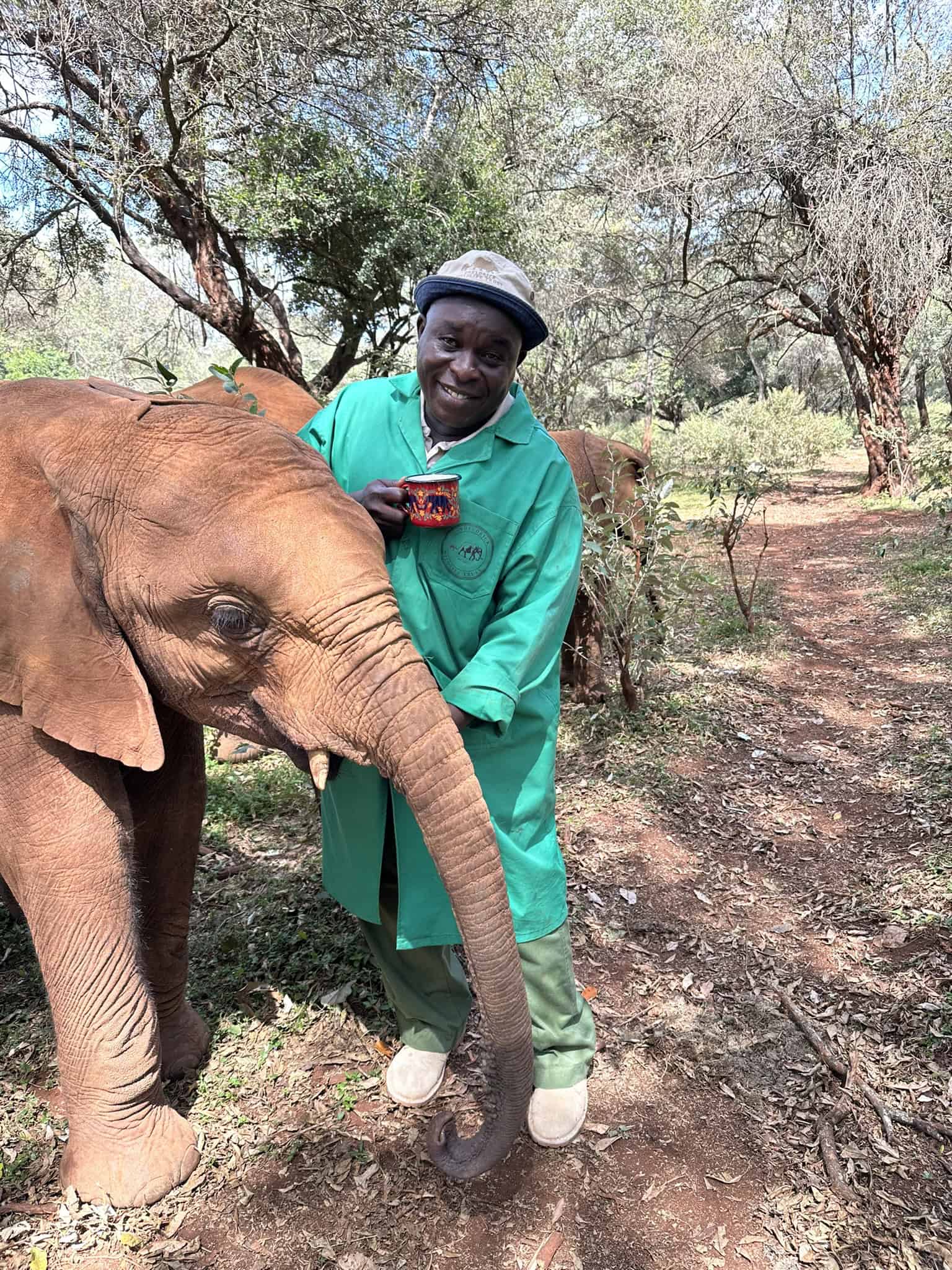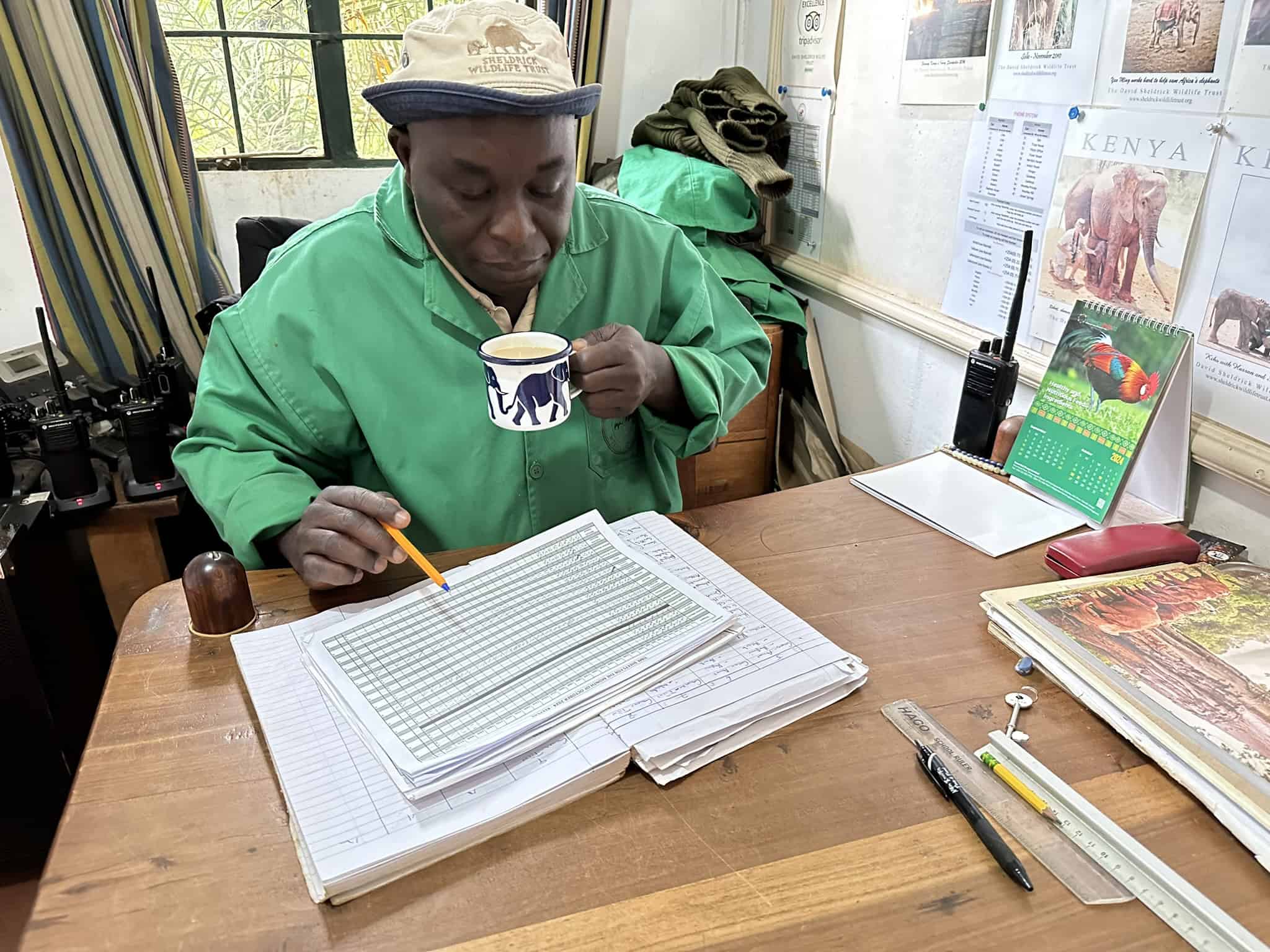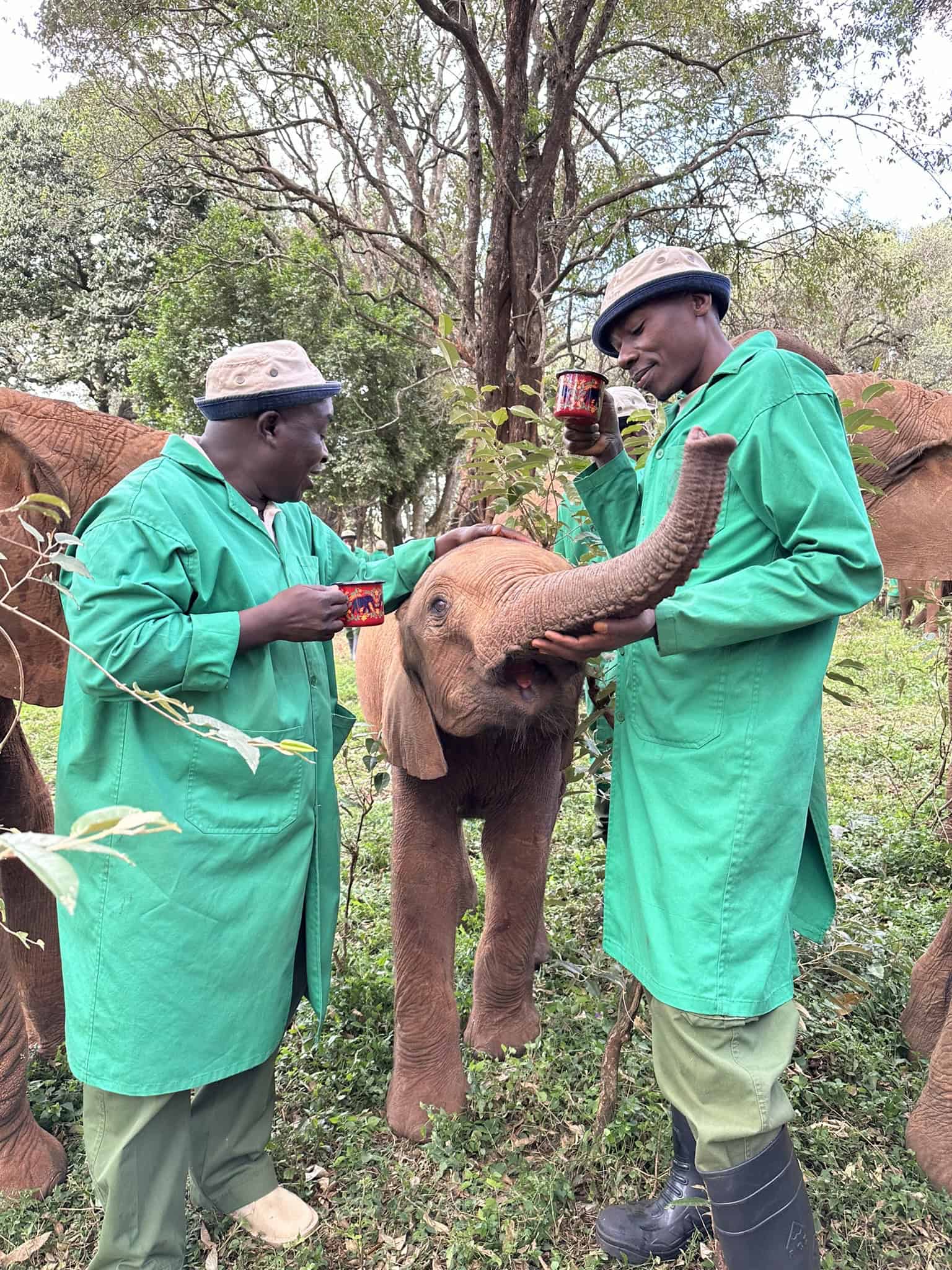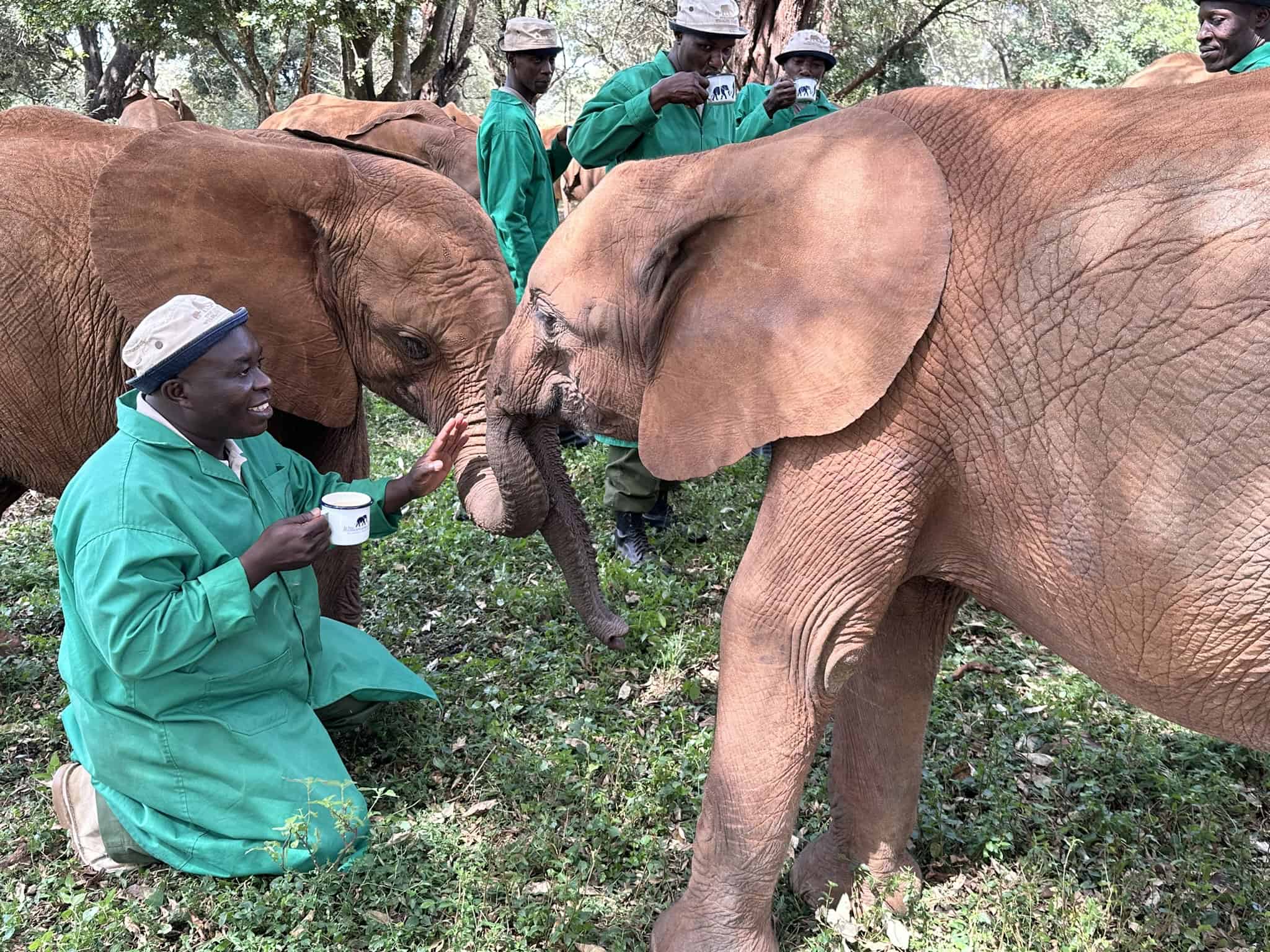
Interview with Edwin Lusichi – Head Keeper, Nairobi Nursery
Williamson Tea are proud to support the incredible work of the Sheldrick Wildlife Trust. Head Keeper of the Nairobi Nursery – Edwin Lusichi was kind enough to share his thoughts and stories. We hope you enjoy!
Did you always imagine working with animals?
Edwin Lusichi: Not at all. When I was younger, I wanted to be a priest. That was my dream throughout school—I never considered any other path.
And what changed?
Edwin Lusichi: After finishing high school, I was supposed to join the priesthood, but due to various circumstances within the church and my family, I wasn’t able to. So, I had to find another path. I decided to study computers, as it was the most immediate option available to me.
And then you went from computers to elephants—quite a leap!
Edwin Lusichi: Yes! After finishing my computer studies, I struggled to find a job. While searching, I kept visiting a friend who worked at the Sheldrick Wildlife Trust, and that’s how I first got introduced to the organisation.
I had always loved animals. I was involved in scouting (boy scouts) throughout school, where we were taught that all creatures have a right to live, and even the smallest insect should not be stepped on. That mindset helped shape my respect for wildlife, and when I started here, I already had a foundation of care and protection for animals.
And how long ago was that?
Edwin Lusichi: That was in August 1999—so nearly 26 years ago now.

As Head Keeper at the Nairobi Nursery, what does a typical day look like for you?
Edwin Lusichi: Busy—very busy! My day starts at 8:00 AM, but the elephants are up much earlier, leaving the stockades at 6:00 AM.
I head out into the forest to check on the elephants, ensuring they are all doing well. If we have any sick or young orphans, I sit down with the overnight keepers to get a full report of how they fared during the night. After gathering all this information, I report to Angela Sheldrick so we can decide on any additional care or treatment that might be needed.
By 9:00 AM, I have a private session with visitors, followed by office work at 10:00 AM—things like making the daily schedules for the keepers. At 11:00 AM, I oversee the public mud bath, during which I give a talk about our project and the elephants in our care, and after that, I often get stopped by visitors with questions, which can keep me busy until 1:00 PM.
After a short lunch break, I finalise the schedules for the night, and following day and announce them to the keepers. Then, at 3:00 PM, I attend another private session, which lasts until 3:45 PM.
Before the orphans return at 5:00 PM, I check the stockades to ensure everything is ready—the food, greens, pellets, loose sand, and hay all need to be in place. When the elephants come back, we feed them and make sure they are settled in for the night. If any elephant is unwell, I report back to Angela for further instructions.
Even after 5:00 PM, my work isn’t over. I’m always on call in case of emergencies—if a sick elephant needs medical attention, I receive updates from the keepers, review photos of stool samples, and, if necessary, consult Angela for advice. Some nights, I barely sleep because I need to keep checking in on our more vulnerable orphans.Do elephants have distinct personalities?
Edwin Lusichi: Absolutely! Just like humans, every elephant is different. Some are shy, some are playful, and some are incredibly stubborn.
There’s Pardamat—he loves running across the yard just to push another elephant over, even if they’re bigger than him. And Talek, she’s obsessed with milk—she’ll steal every last drop from the ground and even rummage through the wheelbarrow for leftovers!

What can people do to support conservation efforts?
Edwin Lusichi: Education is key. Many people fear or misunderstand wildlife simply because they don’t know enough about it. The more people learn about elephants and conservation, the more they realise how important it is to protect them.
If you have resources, donations are always most helpful. But even if you don’t, you can still make a difference by spreading awareness. Talk to people about conservation. Teach children about wildlife. Many conflicts between humans and animals happen because people don’t understand their behaviour.
If we educate more people, we can change mindsets. We can reduce poaching, improve human-wildlife coexistence, and create a world where elephants and other animals are valued for the role they play in our ecosystems.

Final Thoughts
What does your family think about your work?
Edwin Lusichi: They think I’m obsessed with elephants! My kids ask me so many questions about my job, and they’re proud of what I do. Even my brothers have joined the Trust—one works at Ithumba, the other at Voi. Conservation has become a family passion.